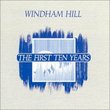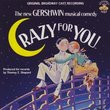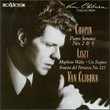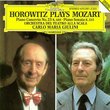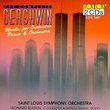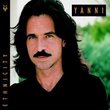| All Artists: Dmitri Shostakovich, Keith Jarrett Title: Shostakovich: 24 Preludes & Fugues op. 87 / Jarrett Members Wishing: 1 Total Copies: 0 Label: ECM Records Release Date: 1/25/2000 Genres: Jazz, Classical Styles: Chamber Music, Historical Periods, Classical (c.1770-1830) Number of Discs: 2 SwapaCD Credits: 2 UPCs: 0028943718929, 028943718929 |
Search - Dmitri Shostakovich, Keith Jarrett :: Shostakovich: 24 Preludes & Fugues op. 87 / Jarrett
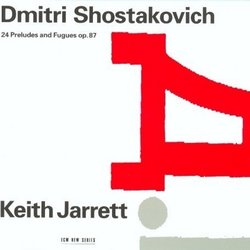 | Dmitri Shostakovich, Keith Jarrett Shostakovich: 24 Preludes & Fugues op. 87 / Jarrett Genres: Jazz, Classical
|
Larger Image |
CD DetailsSimilarly Requested CDs |
CD ReviewsKeith Jarrett, Classical Performer Doc Sarvis | 07/24/2000 (5 out of 5 stars) "Keith Jarrett, known primarily as a jazz pianist, has exhibited a great deal of courage with his recording of classical "standards" such as this one. By doing so he opens himself to accusations of dillitantism from critics, who seem almost universally inclined to place artists into narrow categories, only to label as "pretentious" any performers who try to expand their horizons...a process that usually reveals the critics' own pretentions and ignorance. A recording like this is particularly risky business for Jarrett, who has always been controversial with critics for his unique, individualistic style, his aggressive self-assurance and unwillingness to "suffer fools gladly", and his well-known tendency to "sing" along with his jazz improvisations. Add to everything else the fact that a "standard" of this particular work already exists (in this case Tatyana Nikolaieva's Grammy-winning interpretation), and this recording faces quite an uphill battle.Proving, however, that he is a superior artist, Jarrett's recording of the 24 Preludes and Fugues demolishes all of these would-be objections. Jarrett's interpretation of Shostakovich is perhaps the clearest, most articulate recording ever made of these works, revealing subtlties of texture and mood that previously remained hidden on the printed page...without sacrificing anything in terms of emotion. Part of the credit for this clarity goes to the superior ECM technical recording skills, but any fan of Jarrett's musicality (both expressiveness and clarity) in his jazz playing will find the same qualities here. Incidentally, one thing you won't find here is Jarrett's "singing"...it's missing from all of his classical work.As is the case with his other superb classical recordings, the real triumph here is that of Jarrett as classical performer. Not only does this work stand completely on its own (in other words, it's not a "classical recording by a jazz artist" but a totally serviceable interpretation in its own right), it also adds significantly to our understanding of Shostakovich's composition. It's not the same work as the Nikolaieva classic, and shouldn't be excessively compared to it. It makes its own statement, along with Keith Jarrett, the classical artist. In any idiom, Keith Jarrett will be remembered as one of the great pianists of our time." Far and away the best, and don't give me no lip! Matthew D. White | New Orleans, LA | 11/25/2004 (5 out of 5 stars) "Keith Jarrett himself must have expected wildly polarized reviews on his take of Shostakovich's preludes and fugues, and it's no wonder, as he is more popularly known as a modern jazz master. As I have had access to a public radio station music library, I decided to spend a weekend comparing and contrasting the different recording of this Opus 87, with score in-hand, by Jarrett, Nikolayevna, and Ashkenazy. I rate Jarrett first, second place going to Nikolayevna, and Ashkenazy bringing up a rather indifferent rear. Jarrett's interpretation seems to be most often panned on grounds that he "doesn't understand the music", which is sheer hogwash. Add this to the fact that most critics fail to state what are the prerequisites for understanding this music, and I suggest it's a lot more than understanding Shostakovich's "pain"; a rather over-romantic view of a composer who could and did write extremely emotional music, but also music with humor and grace. There's a lot more to Shostakovich than just "pain". Jarrett has obviously studied the pieces well, and plays each prelude and fugue with flawless technique and even daring interpretation that is notably original, the most obvious case being the C-major fugue being taken at what sounds like a *very* slow pace. But having access to the score, he's taking it at the specified tempo: 92-to-the-quarter, interpreting the "alla breve" by playing very legato. So why do the other recordings have it so fast? Jarrett's A-major fugue shines like the sun; his A flat-major fugue becomes a giddy, but slyly understated dance. (I should add here that in the A-flat prelude Ashkenazy makes a rather shocking note discrepancy in the main theme that either passed a producer's ear or was mis-read in the printed edition.) The more somber pieces are played with respect and deep concentration. Add to this ECM's top-shelf engineering that provides a realistic, deep piano sound, and you've got a five-star set in your hands. The pieces were written for Nikolayevna, but her autumn-years recording seems a bit one-dimensional to my ears at times, and the dynamics are a bit narrow as well, although she obviously has played these pieces for a very long time and seems to have absorbed them to the point where her interpretations seem more introverted, if that is your taste. The piano sound is broad, though it has a bit more hammer sound than Jarrett's. For Ashkenazy, I have nothing exceptional to report. The Decca sound is dry, his rubato doesn't work for me and almost sounds as if he is unsure of himself in places, and overall it doesn't seem to add any air of authority or authenticity. Add to this Decca's assertion that since Askenazy is Russian, his recording is the final word on it, which is pretty trite. Jarrett gives a modern, up-to-date performance that I think will stand the test of time, while the Askenazy will ultimately be re-packaged as a budget set. Go with Jarrett; the man who dares to play classical music that is absolute, stripped bare of tuxedo snobbery. He gives his all for this one, and it shows." I want to give it 6 stars W. P. Gardner | Menlo Park, CA, United States | 09/14/2003 (5 out of 5 stars) "This is my one of my favorite CDs of all time. I also have the Nikolaeva version, but I like this one better. I have bought it three times: once for me, once as a gift, and once to listen to in the car. I don't know what to say about some of the recent reviewers who pan it. I don't think they listened to the same CD as I did (or as many times as I have, i.e. hundreds). I bought it first in 1992 (I don't think the release date shown as 2000 is accurate).This is the first Shostakovich recording I ever bought, and since then I have become a big fan of Shostakovich, particularly his string quartets.I think it is a shame that not many modern composers have gone through the 24 major and minor keys, and have written prelude-and-fugue pairs on them, the way Bach did, and Shostakovich after Bach."
|

 Track Listings (12) - Disc #1
Track Listings (12) - Disc #1